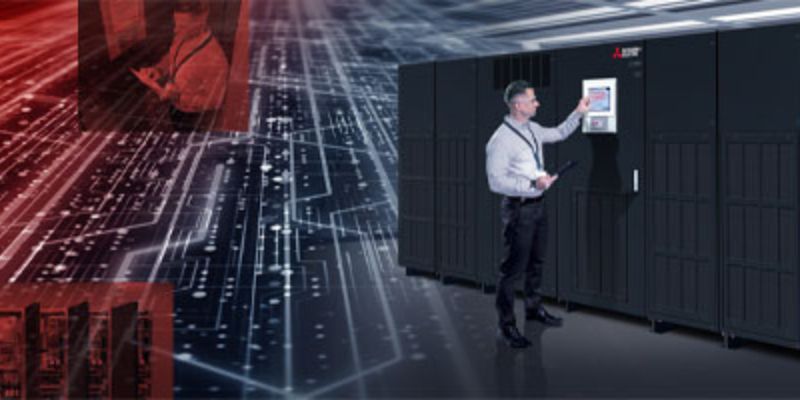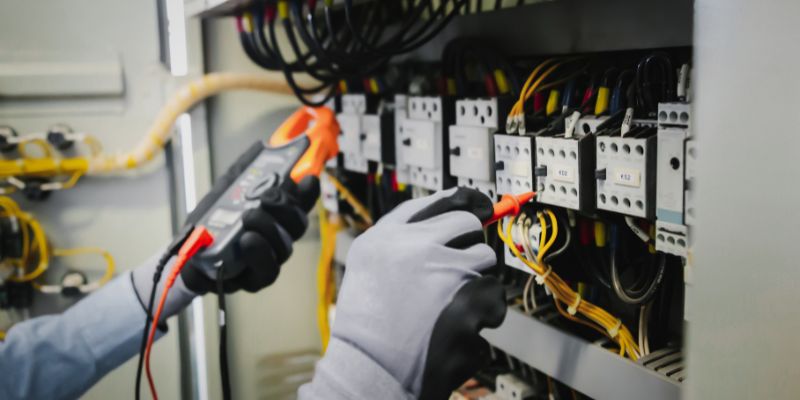Uninterruptible Power Supply (UPS) systems play a crucial role in safeguarding critical equipment and data against power disruptions. The heart of any UPS system lies in its battery, which serves as the backup power source during outages. As technology advances, the debate between sealed lead acid (SLA) and lithium-ion (Li-ion) batteries for UPS systems continues to captivate the industry.
Sealed Lead Acid and Lithium-Ion Batteries for UPS Systems: Weighing the Pros and Cons
Businesses should consider the pros and cons of each type of UPS battery backup system to choose the best type of UPS equipment for their business. Consulting with an experienced critical power service provider will help you understand which type is best for your business.
Evaluating the pros and cons of each battery type can aid businesses in making informed decisions about their UPS power solutions.
Sealed Lead Acid Batteries: The Tried and Tested Workhorses
Sealed lead acid batteries have been the go-to choice for UPS systems for decades. These batteries offer several advantages:
Pros:
- Cost-Effective: SLA batteries are generally more affordable upfront compared to Li-ion batteries, making them an attractive option for businesses with budget constraints.
- Widespread Availability: These batteries are readily available and compatible with a wide range of UPS systems, simplifying replacement and maintenance.
- Robust Performance: SLA batteries exhibit reliable performance over time and are well-suited for applications with less frequent and shorter power outages.
Cons:
- Limited Lifespan: Sealed lead acid batteries have a relatively shorter lifespan compared to Li-ion batteries, requiring more frequent replacements and resulting in higher long-term costs.
- Maintenance Requirements: SLA batteries require periodic maintenance, including checking fluid levels and ensuring proper ventilation, which can add to operational overhead.
Lithium-Ion Batteries: The Modern Contender
Lithium-ion batteries have gained significant traction in recent years due to their technological advancements and benefits:
Pros:
- Longer Lifespan: Li-ion batteries boast a longer lifecycle compared to SLA batteries, reducing the frequency of replacements and associated costs.
- Higher Energy Density: These batteries offer a higher energy density, meaning they can store more energy in a smaller footprint, making them ideal for applications with limited space.
- Low Maintenance: Li-ion batteries require minimal maintenance, eliminating the need for routine fluid checks and ventilation.
- Fast Charging: Li-ion batteries can be rapidly charged, ensuring a quicker return to full power after discharges.
Cons:
- Higher Initial Cost: The upfront cost of Li-ion batteries is generally higher than that of SLA batteries, potentially posing a barrier for budget-conscious businesses.
- Compatibility Concerns: Not all UPS systems are designed to accommodate Li-ion batteries, which could limit options for system upgrades.
Making an Informed Decision
Choosing between SLA and Li-ion batteries for UPS systems depends on various factors, including budget, performance requirements, and long-term goals. Businesses with strict budget considerations and shorter expected power outages might find SLA batteries suitable. On the other hand, those seeking longer lifespans, lower maintenance, and faster charging may lean toward Li-ion batteries.
Santa Fe Power Solutions
When it comes to navigating the complexities of UPS systems and battery choices, Santa Fe Power Solutions stands as a reliable partner. With a deep understanding of critical power infrastructure, Santa Fe Power Solutions offers tailored solutions that align with businesses’ unique needs.
Whether opting for SLA or Li-ion batteries, partnering with Santa Fe Power Solutions ensures access to expert guidance, seamless implementation, and unwavering support for an uninterrupted power supply. In a world where downtime is not an option, Santa Fe Power Solutions empowers businesses to make the right choice and maintain operational excellence. Contact us to learn more about choosing the best battery backup for your business as part of your overall critical power solutions.



